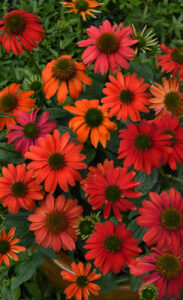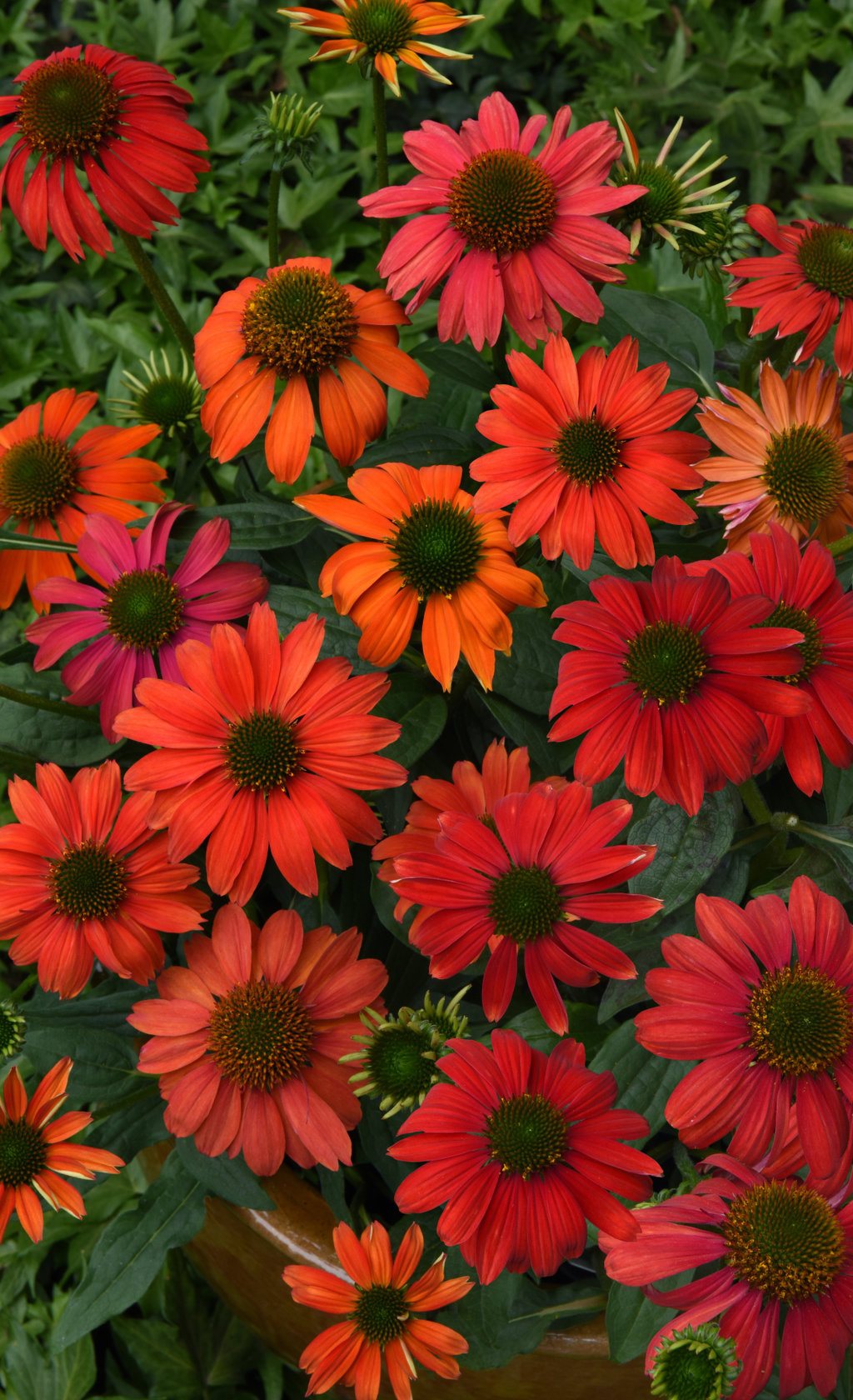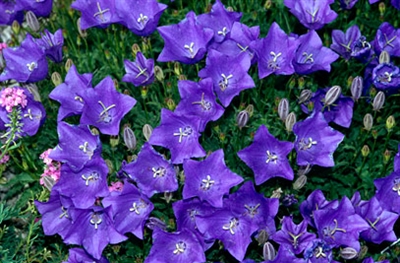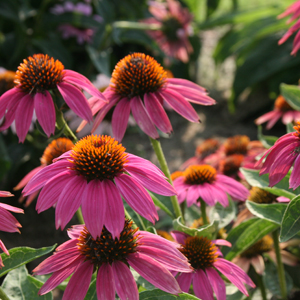Description

Echinacea Firefinch
Features
This incredibly colorful coneflower is a mixed strain showcasing shades of red flowers, including reddish-orange and pinkish red. A shorter plant that’s perfect for small spaces.
Fragrant Flower
Long Blooming
Drought Tolerant
Attracts:
Butterflies
Hummingbirds
Resists:
Deer
Native to North America
Characteristics
Duration: Perennial
Height Category: Short
Garden Height: 12 – 16 Inches
Spacing: 16 – 18 Inches
Spread: 16 – 18 Inches
Flower Colors: Red
Flower Shade: Reddish orange to pinkish red
Foliage Colors: Green
Foliage Shade: Green
Habit: Upright
Container Role: Filler
Plant Needs
Light Requirement: Part Sun to Sun
Maintenance Category: Easy
Bloom Time: Summer through Fall
Hardiness Zones: 4a, 4b, 5a, 5b, 6a, 6b, 7a, 7b, 8a, 8b
Water Category: Average
Needs Good Drainage
Soil Fertility Requirement: Average Soil
Fertile Soil
Poor Soil
Uses: Border Plant
Container
Cut Flower
Dried Flower
Landscape
Mass Planting
Maintenance Notes:
Grow in sunny and hot locations with well-drained soils. Tolerates light shade, but best performance is in full sun. Drought tolerant once established.




Reviews
There are no reviews yet.